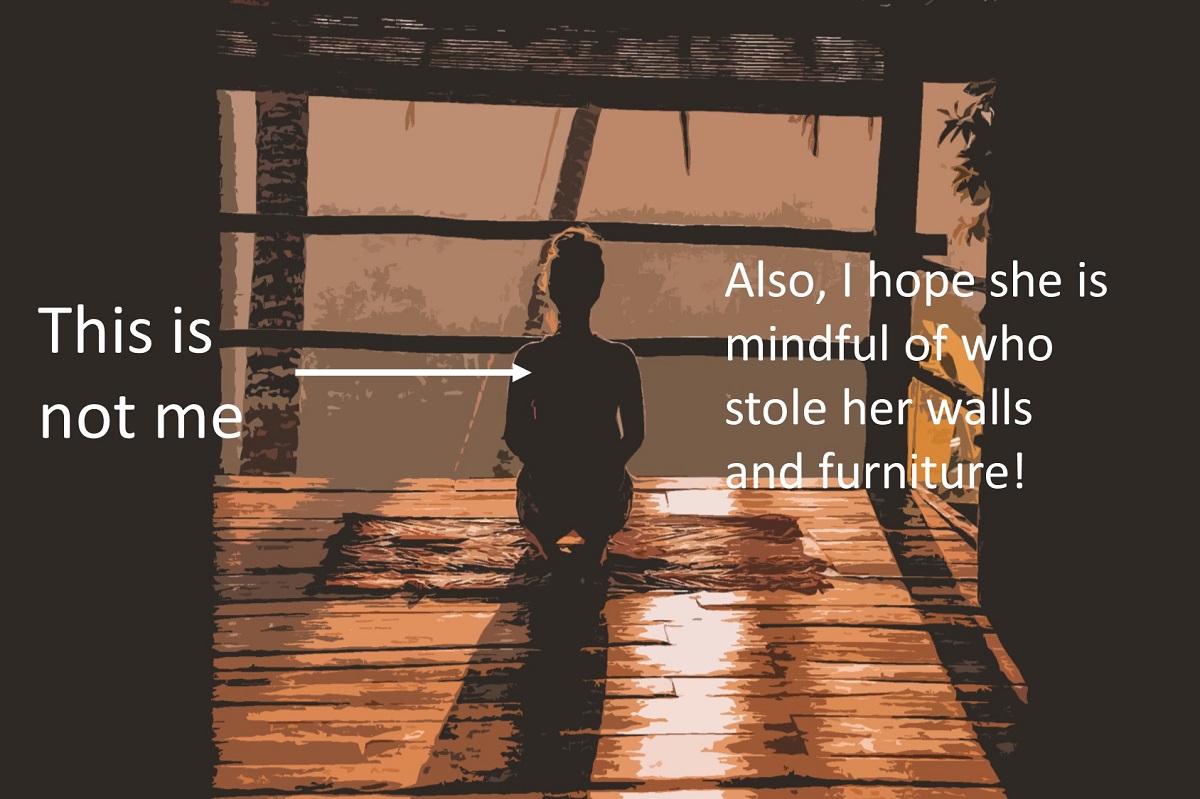
This morning I started a program of mindfulness meditation.
I was inspired following a discussion with a student yesterday who highlighted the introduction of meditation as one of the single best changes they’d made to their life in recent times.
Professionally I am quite aware of of the potential benefits of meditation – I’ve even written about it previously on the blog. Mindfulness meditation is included as one of a number of self-care strategies in my self-care guide.
To get started with my own mindfulness meditation practice, I ironically turned to my mobile phone.
If it strikes you as a bit amusing that the same devices that cause us so much distraction might also be our entry point into meditation practice, then you aren’t the only one.
But the reality is mobile phone apps are for many people their first experience of mindfulness meditation.
I went with the Smiling Mind app – I already had it on my phone – It is Australian – They are a not-for-profit – They’ve been around for a while – The app is reasonably highly rated on the app store – The app is free – They seem at a superficial level at least, interested in the potential science and evidence behind mindfulness meditation.
This morning I did the “Introduction to Mindfulness” program.
A very pleasant sounding man guided me through 3 ‘sessions’ totaling no more than 14 minutes.
In the first session, he introduced me to the concept of mindfulness – focusing on what it feels like to be mindful. In the two subsequent sessions, he guided me through two mindfulness practices – a 1-minute and a 6-minute practice. The essence of both practices was the same – inviting me to sit quietly, close my eyes and attend closely to my breath, the sounds around me and the sensations in my body.
I found both exercises quite relaxing, although the pace of his breathing instruction was much faster than my actual breath. Before and after each session, the app invited me to rate my mood and energy level. I would say I experienced a small lift in both.
Tomorrow I will launch the ‘Adult’ program, which is merely a reference to age, not that it is raunchy in any way. That program is significantly longer with 10 modules and 42 sessions.
I will be doing my mindfulness practice in the morning. I tend to get up early which means I typically have at least 20 minutes to spare, after getting ready and making my lunch. I’ll be fitting my mindfulness practice into that space.
My goals
I’ve dabbled previously in mindfulness meditation but never stuck with it. One of the reasons was that I didn’t have very well defined goals – I wasn’t clear on what I was hoping to get out of regular mindfulness practice.
This time around is a bit different. I have a clearer vision of what I’d like to achieve.
- Personal goals. I have some specific things I want to achieve for myself:
- I’d like to improve my ability to relax, by using mindfulness exercises during stressful periods.
- I’d like to get better at refocusing my attention when I find my mind wandering or ruminating (which in psychology means getting caught up in one’s distress). This is linked to a broader goal to be more productive in terms of my writing.
- I’d like to develop a stronger and more compassionate awareness of my body, in order to tackle symptoms of illness, but also to counteract long-standing issues with negative body image.
- I’d like to find out if regular meditation practice is associated with greater feelings of transcendence and connection with a greater meaning/purpose.
- I’d like to use meditation to improve my ability to visualise a better life.
- I’d like to find out if blogging about starting a new habit helps me stick with the habit for longer. I suspect that the self-reflection that is involved in blogging about the experience will be beneficial in me in sustaining the habit at least long enough for me to determine if regular mindfulness practice is beneficial for me.
- Professional goals. There are also a number of goals that I have in relation to my role here at Flinders:
- I spend a lot of time on this blog telling you how to increase your wellbeing, or be a better student. I need to lead by example by showing that I am making investments in my own health and wellbeing. If you see me making efforts to increase my wellbeing or be more productive, then you might not think I am a hypocrite.
- I am hoping that some students might decide to join me on the journey and take up mindfulness practice themselves and we can compare notes over at the Wellbeing for Academic Success FLO topic.
- By blogging about my experiences I hope you will see the ups and downs of trying to establish a new habit and maybe be a little less self-critical about your own efforts.
I’ve previously talked on this blog about self-experimentation. Self-experimentation involves starting a new habit and then monitoring the positive and negative consequences of that habit. This is important because even if the evidence is strongly in favour of a habit being beneficial, we don’t truly know its worth to us, until we have implemented it in our own lives.
So this is my first self-experiment that I am sharing with you all. If you think you might be interested in joining me on the journey, simply download the Smiling Mind application, set a time of day to use it, and then come share your experiences with me over on FLO. I’ll be starting a dedicated discussion topic to it.
Have a good day!
G

